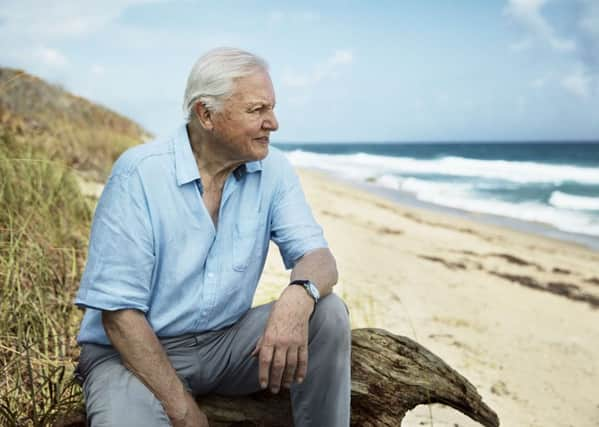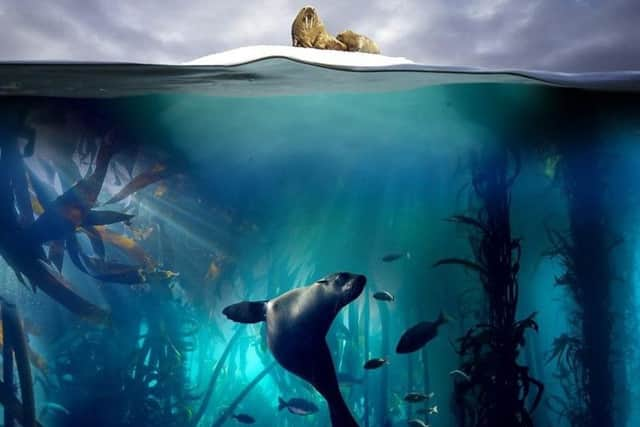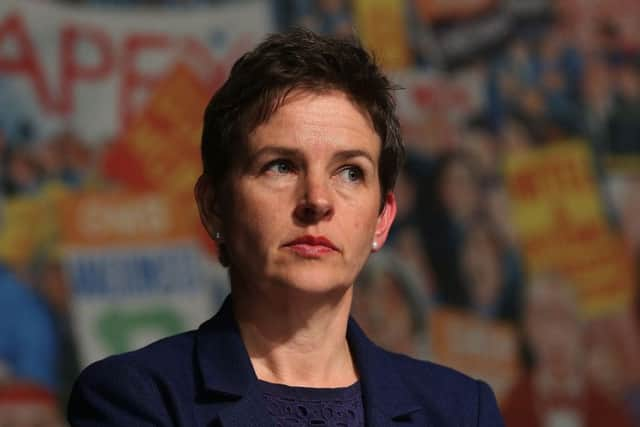Mary Creagh: Stop treating the seas as a sewer for all our sakes


Plastic makes up 70 per cent of all the litter in the ocean, with most of it coming from land, being transported by rivers and draining into the sea. If no action is taken to reduce plastic pollution, it will treble in the next 10 years.
The amazing Blue Planet II programme showed us the consequences: a turtle tangled in a plastic sack; and the death of a newborn whale calf from causes unknown. Plastic litter and chemical pollution are everywhere in the ocean.
Advertisement
Hide AdAdvertisement
Hide AdThese plastics are eaten by seabirds and they suffocate coral reefs; they break down into microplastics, which are eaten by sea life, which we then eat, potentially transporting chemicals into our human food chain. The long-term harm from plastic and chemical pollution is unknown because, as the Government’s chief scientific officer told us, we have not looked hard enough.


There is so much more that the Government should do to prevent our waste from reaching the ocean. We could start by not exporting our waste to countries with poor recycling.
Supporting Indonesia and Malaysia to reduce their plastic while simultaneously exporting the UK’s contaminated plastics to them shows the Government’s lack of a joined-up approach.
The Government published its resources and waste strategy in December. It places much more onus on producers to pay for the cost of clearing up and treating waste, as was recommended in the Environmental Audit Committee’s reports on plastic bottles and coffee cups last year.
Advertisement
Hide AdAdvertisement
Hide AdBut we cannot wait until 2042 to phase out avoidable single-use plastics, and the plastic bottle deposit return scheme, which was promised by Ministers in 2017, will not be ready until 2023.


The Government has signed up to the 14th sustainable development goal target to prevent and significantly reduce marine pollution of all kinds by 2025. So here is our plan. We want to see the Government ban single-use plastic packaging that is difficult to recycle; introduce a 25p latte levy on disposable coffee cups, with all coffee cups to be recycled by 2023; and bring forward their deposit return scheme and extended producer responsibility schemes before the end of this Parliament. The Government must also set out how they will create and fund the UK’s domestic recycling industry to end the export of contaminated waste to developing countries.
Climate change is causing a triple whammy of harm from ocean acidification, ocean warming and deoxygenation. This harms the entire food web and disrupts our weather systems. The recent Intergovernmental Panel on Climate Change report showed us that a 2C rise above pre-industrial levels will significantly harm biodiversity and fish stocks, and will destroy nearly all the coral reefs in the world. If we can keep the temperature rise to 1.5C, we will still lose 90 per cent of coral reefs. Until we did this inquiry, I did not know that the UK has a cold-water reef in the south of England.
That is why we have to redouble our actions to reduce our greenhouse gas emissions and meet the Paris agreement on climate change. The Government must set out their plans to achieve that in the first half of this year and set a net zero emissions target by 2050 at the very latest.
Advertisement
Hide AdAdvertisement
Hide AdSpecies affected by climate change include krill and plankton; if they are removed from the marine food chain, that could lead to a one-third collapse in the populations of predators such as polar bears, walruses, seals, sea lions, penguins and sea birds.
Britain’s overseas territories and their waters cover an area nearly 30 times the size of the UK, and nearly 90 per cent of the UK’s biodiversity is located in their waters. They have the most unique and biodiverse areas on the planet, and we have a huge responsibility to protect them.
But we heard how so much of the sea – 58 per cent of it – is outside national jurisdictions, has little or no protection and is suffering from the tragedy of the commons: everyone goes there to graze their sheep, but there is nothing left at the end.
The UN is currently negotiating a high seas treaty. We call on the Government to seize this chance and push for a Paris agreement of the seas.
Advertisement
Hide AdAdvertisement
Hide AdLike the climate change agreement, it would contain legally binding targets and regular conferences of the parties to hold Governments to account, and designate marine protected areas and the funding needed to achieve them. We look forward to the publication of the Government’s international ocean strategy later this year.
Mary Creagh is the Labour MP for Wakefield and chair of the Environmental Audit Committee which has just produced a report entitled Sustainable Seas.